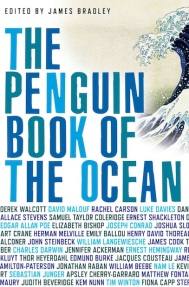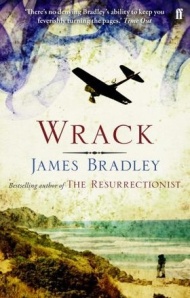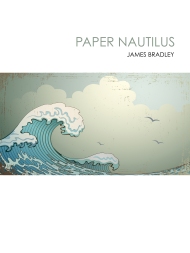Literary Bloodsport Part 3: The Writers Strike Back
 I’ve been meaning to do a follow-up on my post about literary hatchet jobs for a while now, but the story in yesterday’s Gawker about Alice Hoffmann’s colossal dummy-spit (or is that dummy-twit?) is so hilarious I can’t hold back any longer. As the story explains, Hoffman took great exception to what sounds like a classic “mixed” review, and proceeded to slag off the reviewer on Twitter, even going so far as to twit the reviewer’s phone number and suggest people ring her up and set her straight. Hoffman is now backtracking, but it’s a little difficult to come back from “Now any idiot can be a critic”.
I’ve been meaning to do a follow-up on my post about literary hatchet jobs for a while now, but the story in yesterday’s Gawker about Alice Hoffmann’s colossal dummy-spit (or is that dummy-twit?) is so hilarious I can’t hold back any longer. As the story explains, Hoffman took great exception to what sounds like a classic “mixed” review, and proceeded to slag off the reviewer on Twitter, even going so far as to twit the reviewer’s phone number and suggest people ring her up and set her straight. Hoffman is now backtracking, but it’s a little difficult to come back from “Now any idiot can be a critic”.
What’s particularly striking is that it’s only one of several cases of writers losing their cool about reviews in recent weeks. Last week MediaBistro reported that Alain de Botton (who I once heard a middle-aged lesbian describe as the thinking woman’s crumpet) took violent exception to Caleb Crain’s review of his new book, The Pleasures and Sorrows of Work, taking time out from his clearly hectic schedule to blast Crain in the comments section of Crain’s blog, Steamboats are Ruining Everything (Botton’s killer barb? “I will hate you till the day I die and wish you nothing but ill will in every career move you make”). And in a rather more succinct comment upon a review of her new book, author Ayelet Waldman twitted, “May Jill Lepore rot in hell. That is all”.
Of course there’s a long and (ig)noble tradition of authors slagging off critics. But I suspect there’s a good chance these rather undignified displays say as much about people’s unfamiliarity with the technology as anything. With any new form of communication it takes a while to learn what’s smart and what’s not (ask yourself how long it too you to learn not to email when angry, or to reply all carelessly). And if there was ever a technology for which the old adage, flame in haste, repent at leisure was appropriate, it’s Twitter (at least with Facebook status updates you have some control over who’s listening, and you can quietly delete them if you think you’ve gone too far). Certainly the rapidity with which the story of Hoffman and de Botton’s dummy-spits has spread is a reminder of the capacity of the online world to regulate itself, and of the democratizing nature of the net more generally. Indeed I suspect Hoffman and de Botton’s real crime isn’t being intemperate, but assuming their status as authors gave them the right to be uncivil (that and the fact they look ridiculous).
Of course I would say that. I’ve always cleaved to Disraeli’s famous dictum, “Never explain, never complain”, and while I’ve had plenty of reviews I could have done without, my general view is that it’s not just undignified to get into a stoush with a reviewer, it’s a fight you’re almost guaranteed to lose. At best you’ll give a bad review oxygen, at worst you’ll look petulant and egomaniacal.
Of course de Botton and others might argue that in the new media environment the relationship between writers and critics is altering, and there’s now a place for more direct discussion and engagement. And they’d probably be right, at least with respect to non-fiction, though as I’ve observed above, authors who assume their status as authors grants them any particular cultural authority are likely to be pretty quickly disabused of that notion. Indeed at a very crude level the shift from physical books and newspapers to electronic books and websites is eroding the distinction between the cultural authority of different media, and promoting a situation where what matters is the quality of your commentary, not the publishing house behind you, or your visibility on bookshop shelves.
But I think the situation is very different with fiction. I’ve spent years avoiding explaining my books in interviews (contextualize, expand upon, talk about process, but never, if you can help it, explain them) partly out of a deep, and essentially uncritical unease with doing so, and partly out of a view that to do so reduces them somehow. However often my views about other aspects of writing change, I’ve always believed novels and stories are living things: mysterious, ineffable, prismatic, and that while writers may be required to promote them, ultimately the book will take on its own life separate from them. It’s possible our culture is increasingly inimical to that sort of indeterminacy, but take it away and a work of fiction is inevitably, and fatally, reduced.
For those wanting to read more about the Hoffman/de Botton imbroglio, Salon’s Mary Elizabeth Williams has a few choice words to say on the subject, and later, on Ayelet Waldman’s intemperate remarks. The Literary Saloon also has views on the matter, as do The Afterword and Edward Champion (thanks to GalleyCat for the links). Likewise Motoko Rich has some interesting reactions in The New York Times. And if you want to see Alain de Botton repenting at leisure, you can read the excerpts from his twitterfeed at The New York Observer.
Break text











‘I’ve always believed novels and stories are living things: mysterious, ineffable, prismatic, and that while writers may be required to promote them, ultimately the book will take on its own life separate from them.’
Exactly. Meaning is created when the writing meets the reader, somewhere between the page and the eyes. And every pair of eyes is different.
Yes Alain de Botton’s my crumpet and his childish vindictiveness makes him even more attractive.
But I have to agree with you James. If one puts work out there, one has to take whatever follows, including mean-spirited criticism from people who have too much power and not enough self-awareness. Electronic media makes attempts at retaliation easier and superficially more satisfying at the time, but doesn’t make them more successful. A web forum is not so much a dialogue as a series of performances.
Alain should have come to me with his troubles instead. I could have read “Consolations of Philosophy” to him aloud and told him about the silent rage I am currently maintaining because I will not get into a fight I can’t win.
I’ll have to pass on the attractiveness of Alain, I’m afraid, though I’m pleased for him it’s not just middle-aged lesbians who think he’s hot stuff. What I am interested by is your argument online discussion isn’t discussion but a series of performances, not least because so much of what we write and say about the virtues of the online world is predicated on the idea that it promotes discussion. But when one steps back from it, there is a sense in which comments strings like this one are really a series of little performances bouncing off each other. In this sense they’re not as far away from the slower, and more performative processes of old media, the reviews and letters and replies to letters (and in the TLS, replies to replies to letters, and replies to replies to replies to letters). Of course all writing is performative, as, indeed, is the sort of sparring intellectual conversation prized in the salons blogs would rather like to think themselves modern analogues of. But are conversation and performance actually mutually exclusive? Or does the whole idea of public culture depend upon a fusion of the two?
I spent a bit of time thinking about this last year when I created a verbatim theatre play script based on an online flame war. I was flamed myself in the end – described as a “desperate cow” and “the wife of that tosser from Barking Gecko.”
I think you’re right; online blogs and forums have much more in common with letters-to-the-editor than with any other form of discussion – the significant differences being that publication is instant, and there is no editor.
I don’t think conversation and performance are necessarily mutually exclusive – or ought to be – but for me the crucial element of conversation is that you’re very much engaged in whether and to what extent your message is getting through to the person you’re speaking with. If you’re not, you’re a filthy bore and no one will listen to you anyway. In the online world … yes I think the filthy bores have won, because we have all become one of them! Ha ha!
When you’re writing online, you’re necessarily much more engaged with how brilliantly you’re expressing yourself, and how far and wide you’re brilliance is about to be flung. You immediately feel the satisfaction of having said something – not the satisfaction of having someone else understand you.
I’m not having a go. I think your blog is great and I’m very much of a mind to start up my own. I shall call it “What I Think About Things”. And I’m enjoying the irony of this exchange. I’m telling myself it’s different because we know each other. Why didn’t you call when you were gazing at the history books at the Perth Airport, by the way?
I’m not sure I agree. I think different people behave differently, but while I’m definitely focussed on on how I sound when I’m writing a post, if I’m involved in a discussion I’m much more focussed on the discussion, and on the sharing of ideas. I probably think a bit more than I would before I open my mouth (though given how much further ahead of my brain my mouth usually works that’s not saying much), and if it’s somethign contentious I probably try and make sure what I’m saying is clear and reasonably qualified, but that doesn’t mean I’m not focussed on the person or persons I’m replying to. You’re probably right that part of the satisfaction lies in formulating your ideas in written words, but I don’t think that precludes honest and open exchange.
And yes, there is an irony in us having this conversation online. As for Perth Airport, we were just transiting, so we didn’t get to spend any real time in your fai city (or your company).
And if I were you I’d register http://www.whatithinkaboutthings.com asap – it’s a corker.